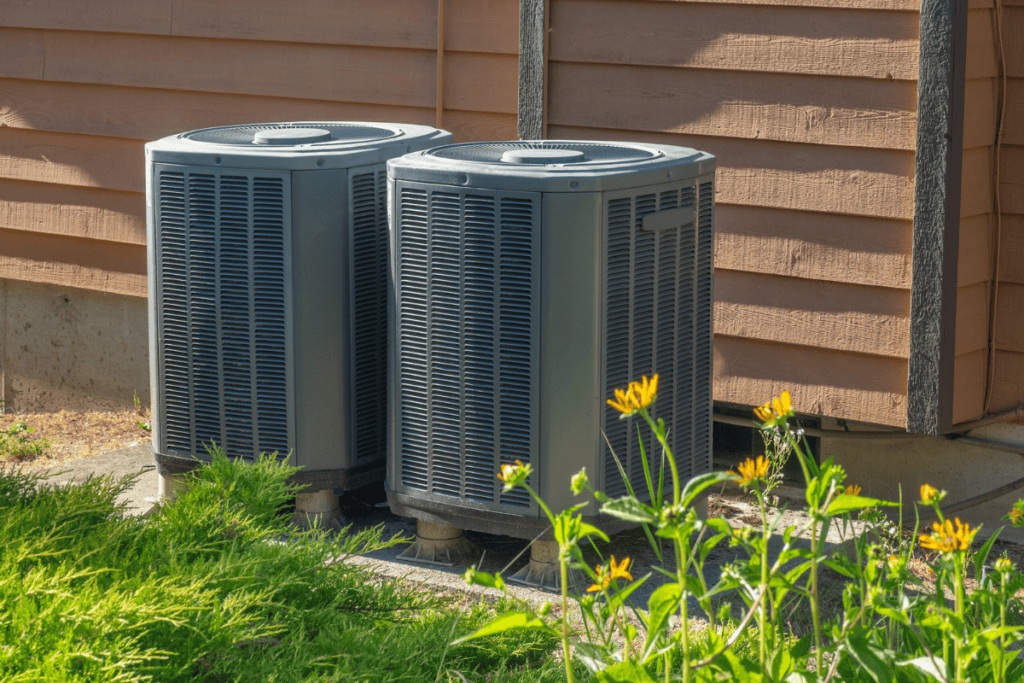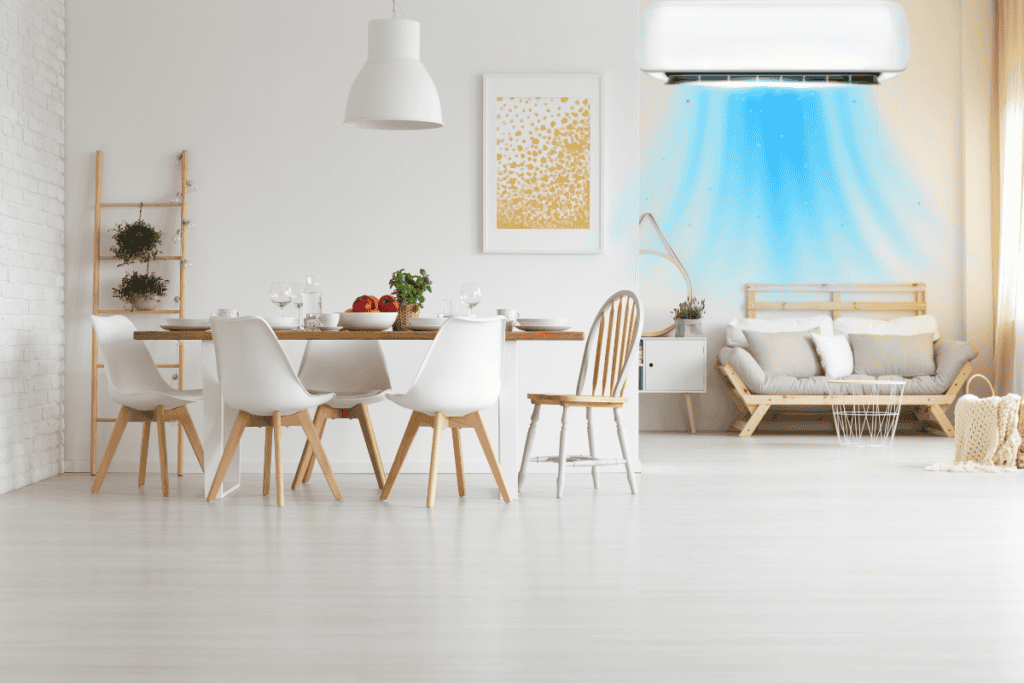Portable air conditioners have become a game-changer for those seeking a flexible and convenient cooling solution. Whether you’re living in an apartment, dealing with a stubborn hot spot, or enjoying the comfort of your RV, a portable AC unit can be your trusty ally in battling the heat.
However, amidst the blissful cool air, your portable air conditioner might be quietly pleading for attention. Neglecting its maintenance, particularly its need to be drained, can lead to a series of unfortunate events that can leave you in an uncomfortable situation.
As your portable unit works tirelessly to keep you cool, it simultaneously accumulates moisture from the air it processes. This condensation can quickly turn into a problem if left unchecked.
To maintain your portable air conditioner, it’s crucial to understand the signs it gives when it’s time to drain the accumulated water. In this guide, we’ll walk you through the importance of draining a portable air conditioner, the telltale signs that indicate it’s time for drainage, and the simple steps you can take to keep your unit running smoothly.
Don’t let your portable air conditioner’s cry for help go unanswered – discover how to be a responsible owner and maintain a cool, comfortable space all season long.
Contents
What is a Portable AC?
Portable air conditioners are compact, mobile cooling units designed to provide cool air to specific areas or rooms. These versatile units can be easily moved from one room to another, offering a convenient cooling solution for homes, apartments, and even RVs.
Portable ACs typically come with an exhaust hose that vents warm air outside through a window or another opening, maintaining efficient cooling. Many portable air conditioners come with features like temperature control, timers, and adjustable fan speeds to enhance user comfort and energy efficiency.
Why Draining a Portable AC Is Necessary
Portable air conditioners not only cool the air but also act as a dehumidifier, removing moisture from the air as they operate. As the unit cools and dehumidifies, condensation forms inside, collecting in an internal water tank or being expelled through a drain hose. In high humidity conditions or during extended use, the amount of water collected can increase rapidly, making it necessary to drain the portable air conditioner regularly.
Consequences of Not Draining
Failing to drain your portable ac can lead to several issues:
1. Mold and Mildew Growth: Stagnant water inside the unit can create a breeding ground for mold and mildew, which may cause health issues and compromise indoor air quality.
2. Reduced Efficiency: As the water tank reaches capacity, the portable air conditioner’s performance may decline, causing it to work harder and less efficiently to keep you cool.
3. Potential Damage: If the water tank overflows, it can lead to water damage to the unit and the surrounding area, potentially shortening the lifespan of your unit.
Factors Influencing How Often to Drain a Portable AC
Several factors determine how often you need to drain your portable air conditioner:
1. Climate and Humidity Levels
In regions with high humidity, portable ACs accumulate water more quickly, requiring more frequent draining to maintain optimal performance.
2. Seasonal Variations
During summer months, increased humidity leads to more water accumulation, necessitating more frequent draining compared to cooler, drier seasons.
3. Usage Patterns
More frequent and longer use of your unit results in greater moisture accumulation, especially in high humidity conditions, leading to a need for more frequent draining.
4. AC Model and Features
Some portable air conditioners come with self-evaporating technology that automatically evaporates most of the condensate, reducing the need for manual draining. However, units without this feature rely on manual drainage or a drain hose to remove the water collected.
5. Room Size and Ventilation
Larger rooms produce more moisture due to the higher volume of air being cooled, requiring more frequent draining compared to smaller spaces. Proper ventilation helps manage humidity levels, potentially reducing the frequency of draining.
5 Signs That Your AC Needs Draining
1. Full Water Tank Indicator
Light Many portable air conditioners come equipped with a light indicator that signals when the water tank is full. If this light illuminates, it’s a clear sign that the internal tank or reservoir has reached its capacity and needs to be drained to ensure the unit continues to function efficiently.
2. Reduced Cooling Efficiency
If you notice a decrease in your portable unit’s cooling performance despite the unit being powered on and the settings properly adjusted, it could indicate a full water tank. A full tank hinders the unit’s ability to effectively cool and dehumidify the air, leading to reduced efficiency.
According to the Environmental Protection Agency (EPA), indoor humidity levels above 60% can promote mold growth and increase allergen levels, impacting indoor air quality.
3. Condensation or Water Leaks
Excessive condensation or water leaks around the unit can be a clear indication that the water collection system is overwhelmed. If you observe water pooling around the base of the unit or dripping from the exhaust hose, it likely means that the internal tank is full and needs draining to prevent water damage to your living space.
4. Unpleasant Odors
Accumulated moisture inside the unit can create a breeding ground for mold and mildew. If you detect musty or unpleasant odors emanating from your portable air conditioner, it may indicate that mold or mildew is present due to excess moisture buildup.
Mold not only affects your AC’s efficiency, causing it to work harder and use more energy, but it can also significantly raise your utility bills. Draining the unit can help alleviate this issue by removing the excess water and preventing further mold growth.
5. Unusual Sounds
A full water tank can sometimes cause the unit to produce unusual sounds or vibrations, such as gurgling noises or rattling. These sounds may occur as a result of water sloshing around inside the unit.
If you notice any unusual sounds or vibrations coming from your portable air conditioner, it’s worth checking the water level and draining the unit if necessary to maintain optimal performance and prevent potential damage.
Call HVAC Angel For Your Portable AC Needs
At HVAC Angel, we understand the importance of maintaining your portable air conditioner for optimal performance and longevity. Our team of experienced technicians is equipped with the knowledge and tools necessary to address all your portable AC needs.
Whether you require assistance with draining your unit, troubleshooting issues, or performing regular maintenance, we are here to help. What sets HVAC Angel apart is our commitment to exceptional service and customer satisfaction. We prioritize your comfort and safety above all else, and our technicians go above and beyond to address your specific needs.
With our commitment to exceptional service and customer satisfaction, you can trust HVAC Angel to keep your portable air conditioner running smoothly, ensuring your comfort throughout the warm months.
Frequently Asked Questions
1. Is it OK to run portable AC all day?
While it’s generally safe to run a portable unit all day, it’s essential to maintain proper maintenance, including regular draining, to prevent issues like mold growth and reduced efficiency. Continuously running your AC may also lead to higher energy bills.
2. Do I need to constantly drain my portable air conditioner?
The frequency of draining your AC depends on factors such as humidity levels, usage patterns, and the unit’s features. Some models may require daily draining, while others can go several days or weeks between draining. Consult your owner’s manual for specific guidance.
3. How much water drains from a portable air conditioner?
The amount of water that drains from a portable unit varies depending on the unit’s size, the humidity level in the room, and the duration of use. On average, a portable air conditioner may collect between 5 to 20 liters of water per day.
4. What happens if you don’t drain the AC?
Failing to drain your AC can lead to reduced cooling efficiency, mold and mildew growth, unpleasant odors, and potential water damage to the unit and your living space. In some cases, the unit may automatically shut off to prevent overflow and damage.

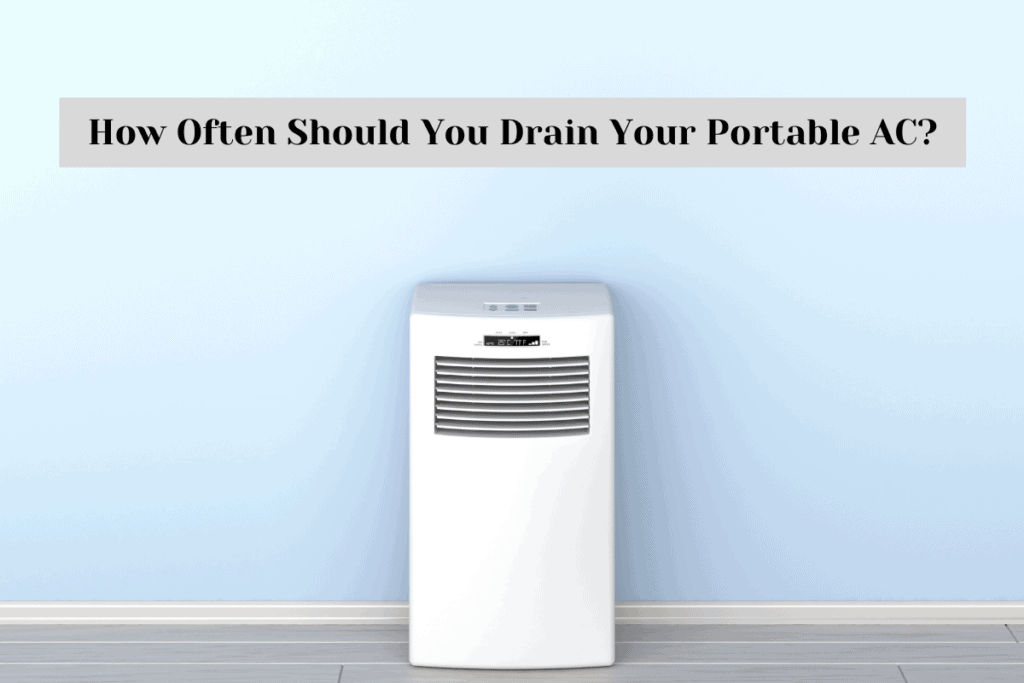
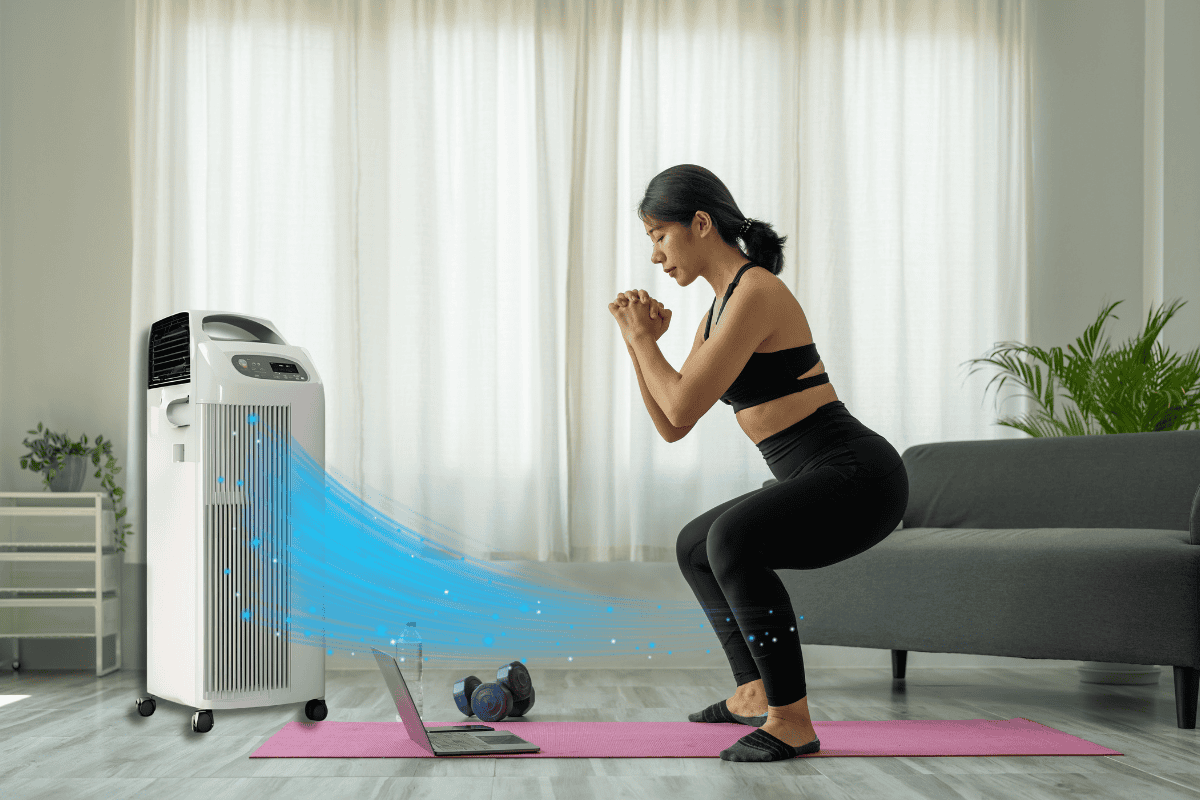
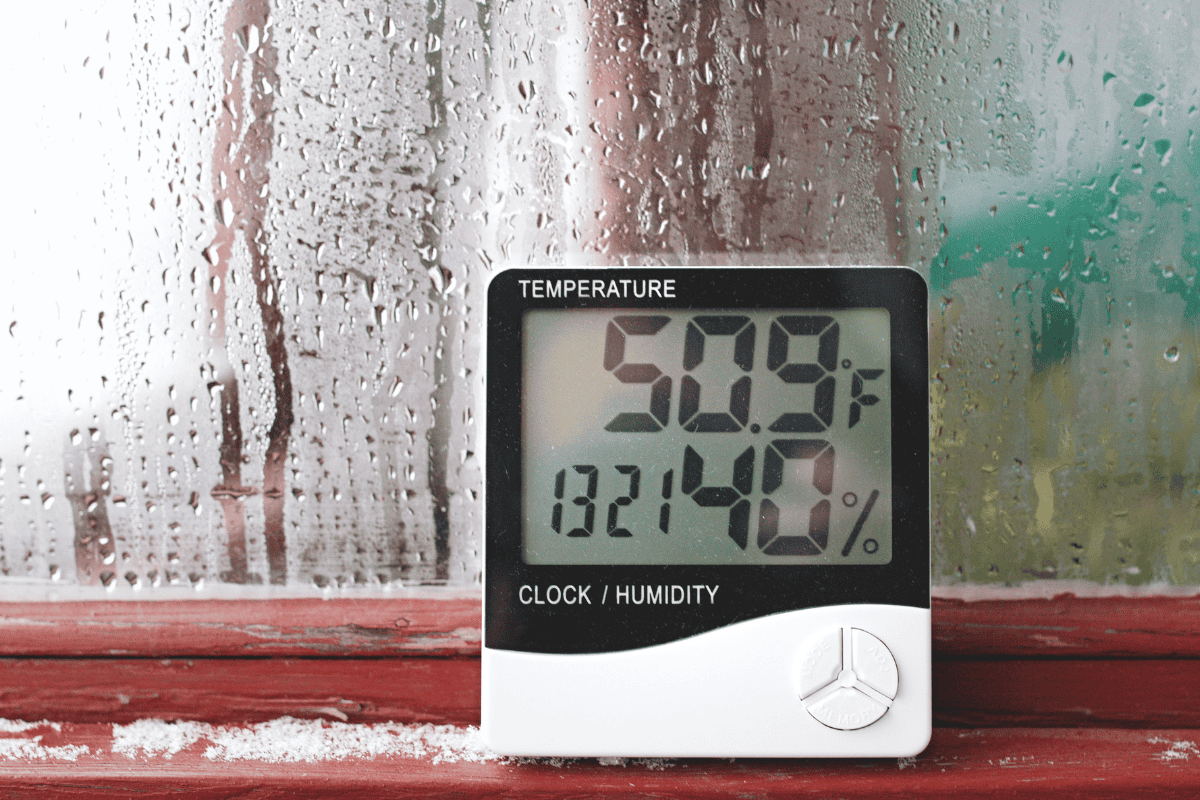

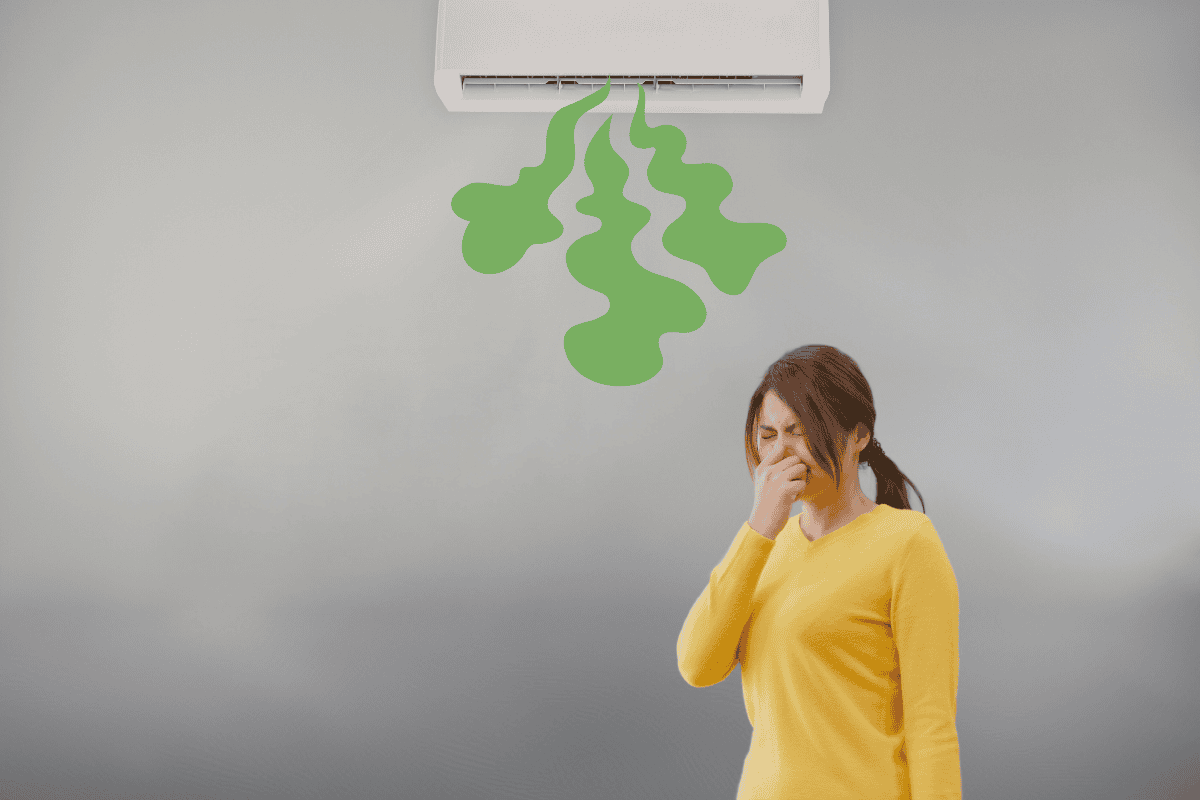
![9 Reasons That Causes an AC Unit to Freeze Up: [Troubleshooting Guide]](https://hvacangel.com/wp-content/uploads/2024/05/what-causes-a-ac-unit-to-freeze-up-1024x683.png)
